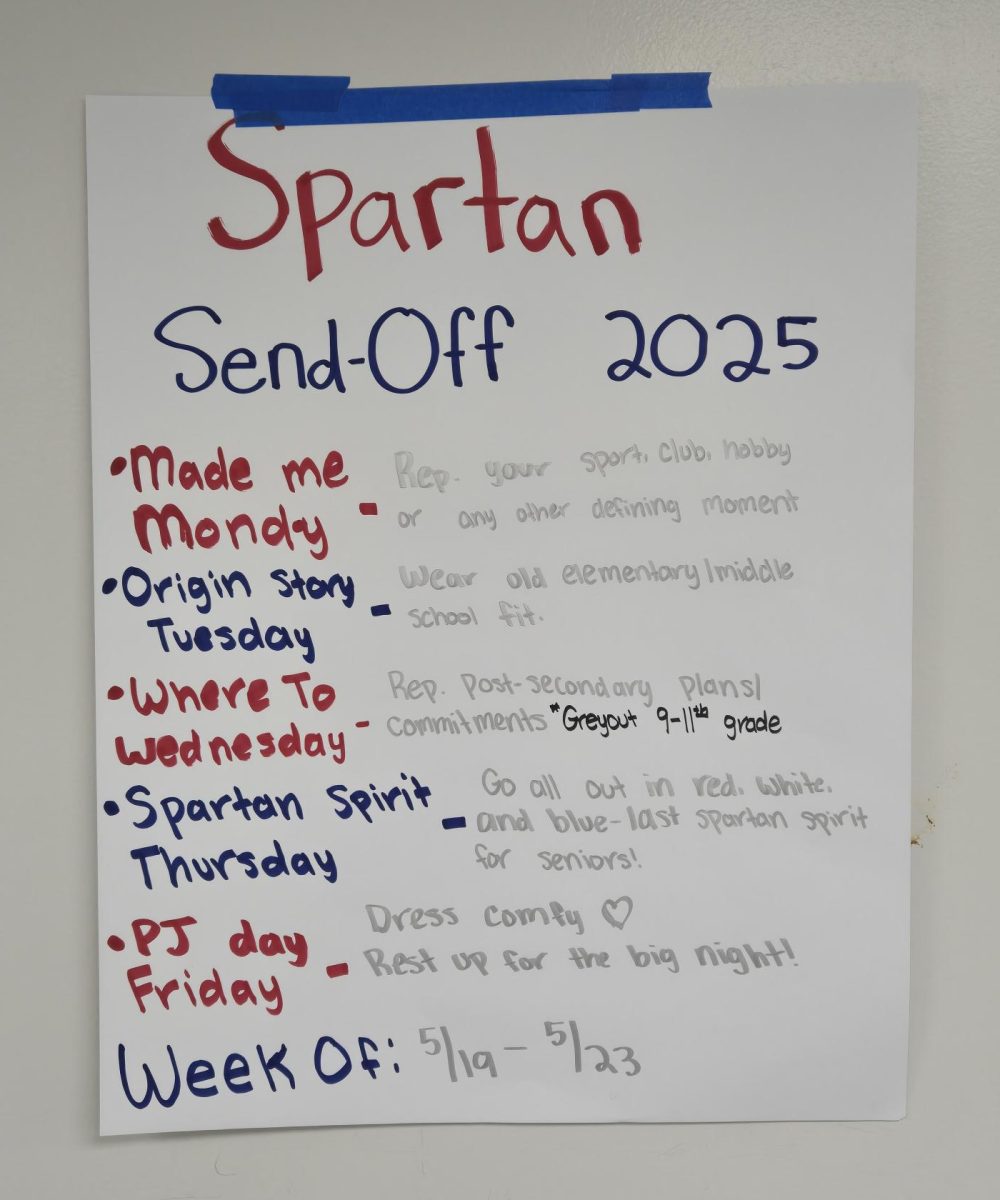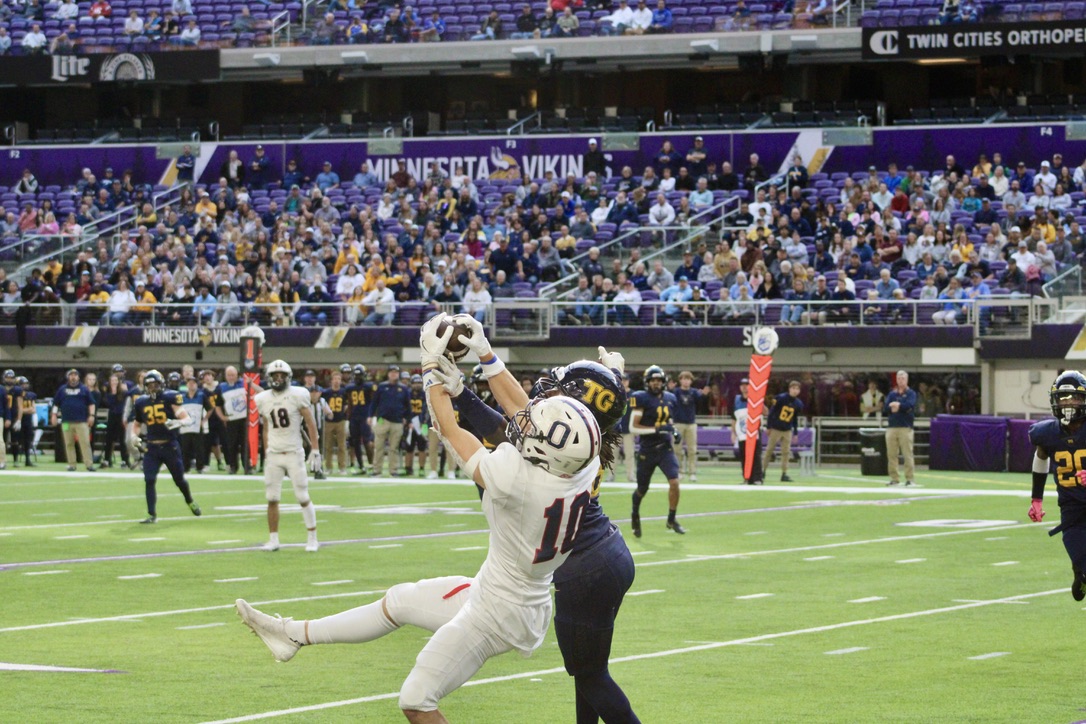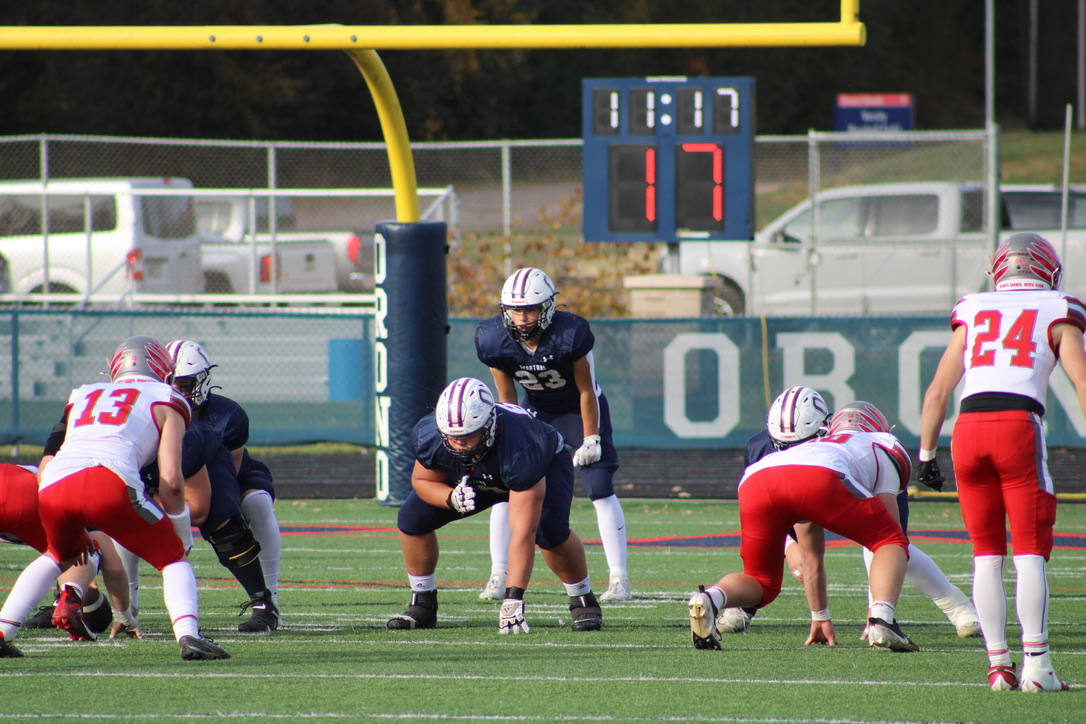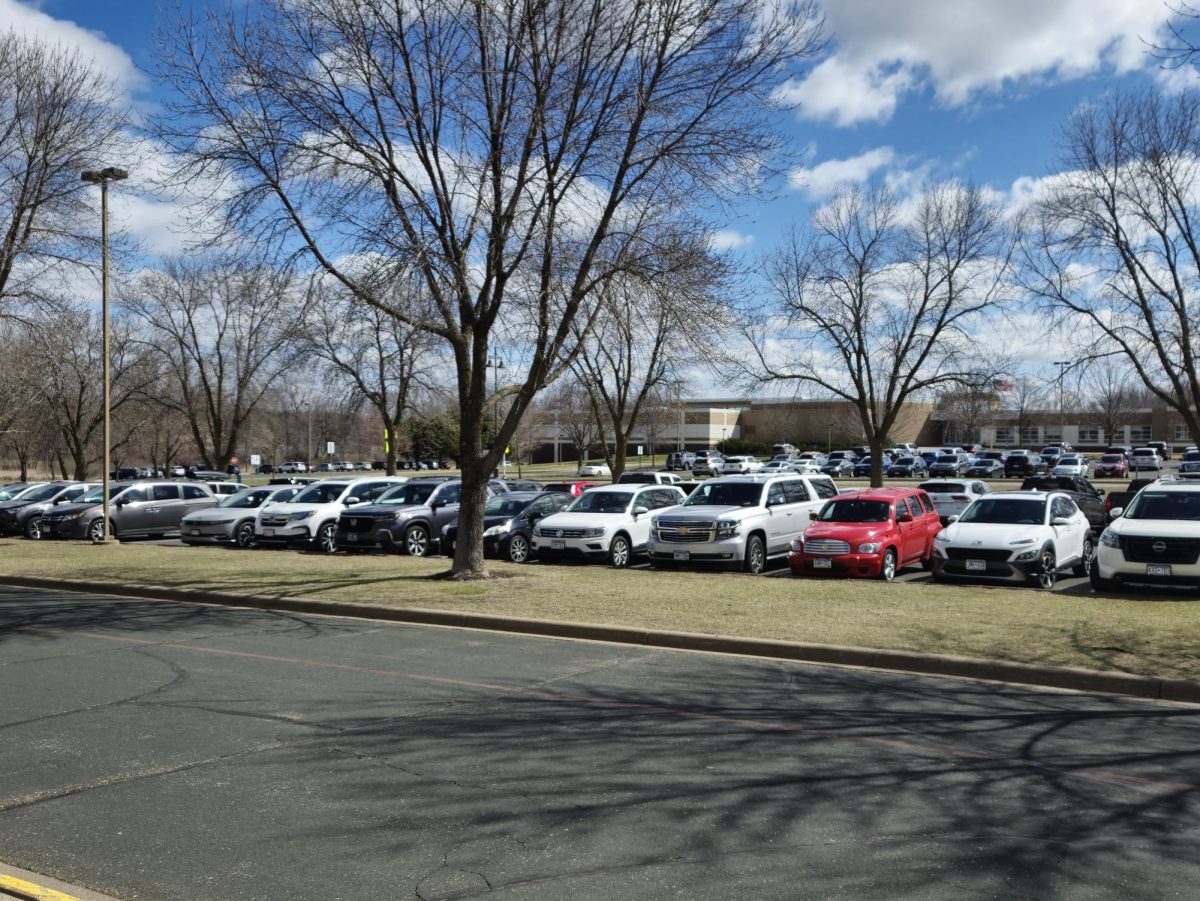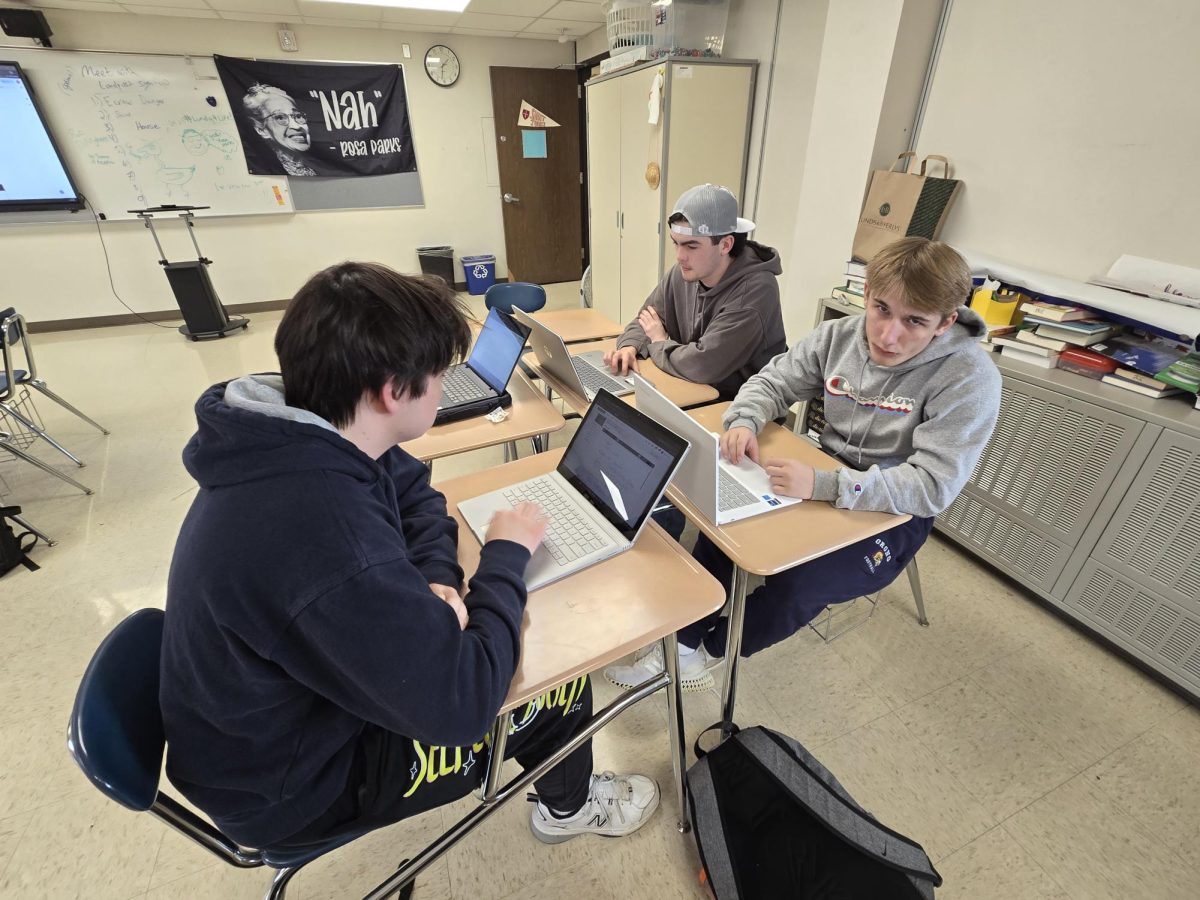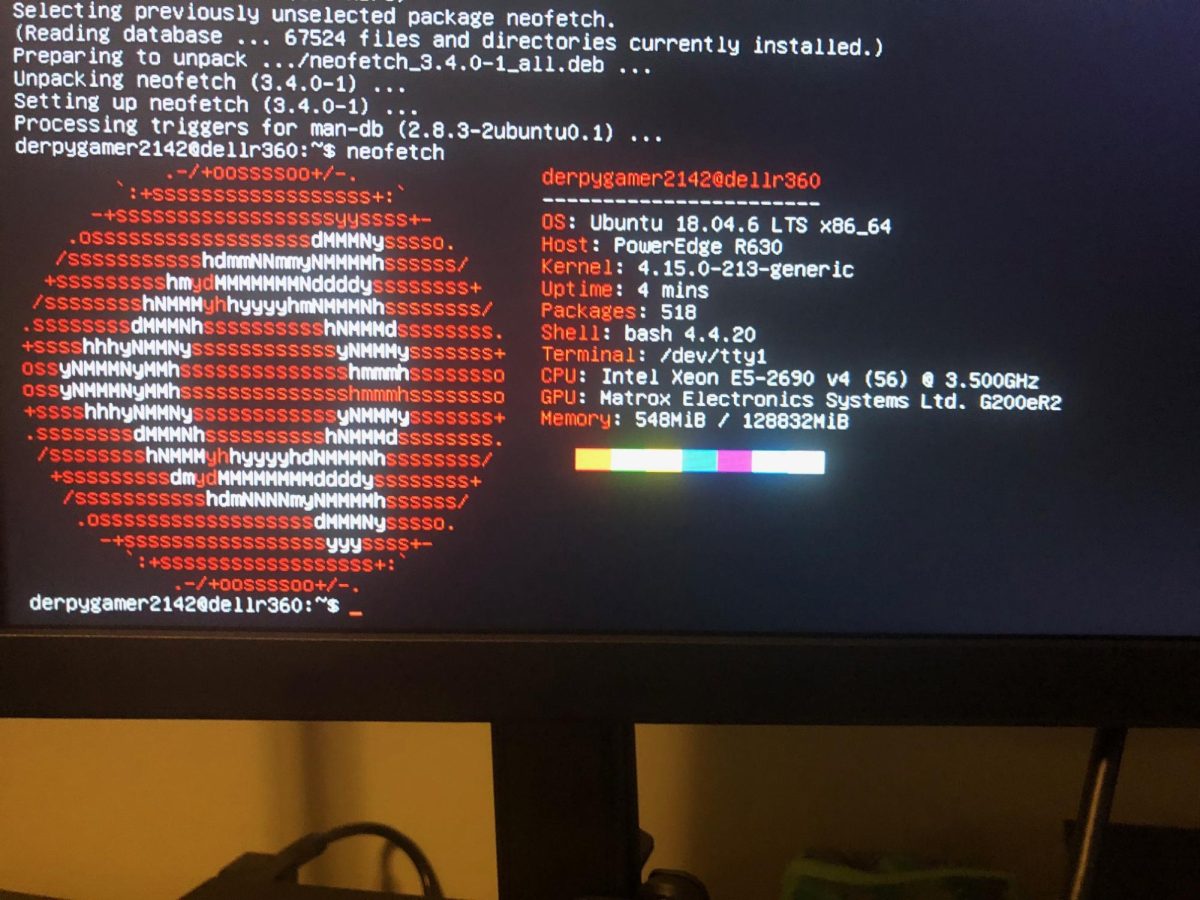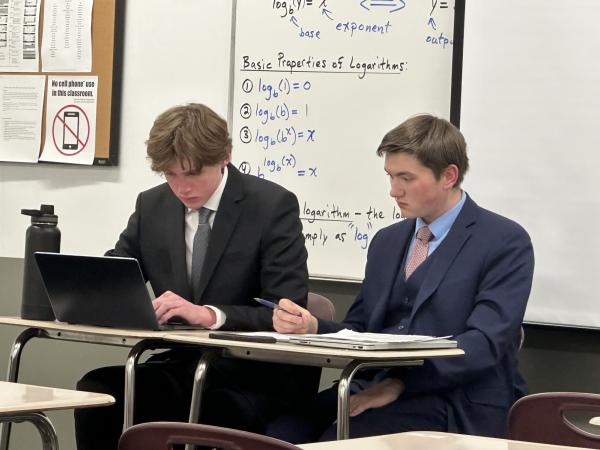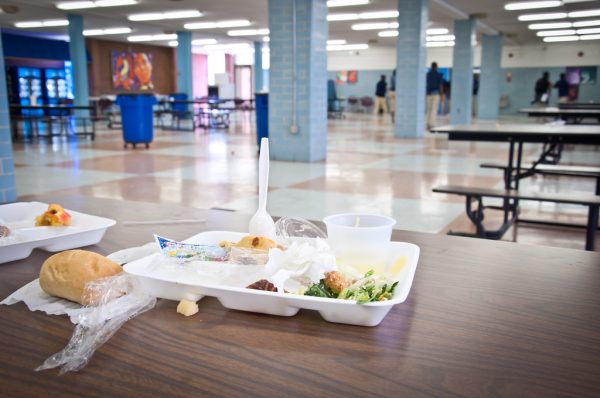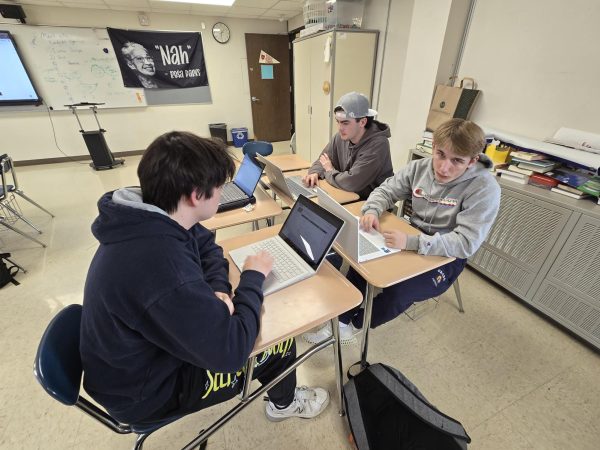Orono Does Not Prepare Students for the Real World
Caroline Robson
News Editor
When I say Orono, I am not just referring to the school. I am referring to the town, the community, and the bubble that encompasses us, setting us up with unrealistic expectations of how the world will work. The ‘Orono bubble’, as many affectionately call it, is very real. Our school does not do much to break through this bubble and educate students about an area that actually matters slightly more than MLA format: how the real world works.
For the most part, a good majority of students here have had many luxuries in life handed to them. Most of our parents have stable, well-paying jobs, we live in large, comfortable houses with white picket fences and plenty of space, we have multi-car garages to house the cars we are gifted on our 16th birthdays.
The median household income of Orono as of 2016 is $119,000, compared to the US average of $55,000, according to the US Census Bureau. Many students and families may think their style of living is normal, and some students may even be led to feel underprivileged when they are not granted as nice luxuries as their peers, but are still definitely very lucky. I have seen instances where students are mad at their parents for not getting them the car they want, when in reality most of America can barely afford two cars per family.
“It sounds stuck up, but I really couldn’t imagine if not driving my car to school every day. It’s so convenient and makes my life easy to have a reliable car that is my own,” senior Natalie Brockman said.
In college, many students will be faced with some struggles for the first time. Students will be broke, living on cheap meal plans and thriving on coffee and ramen noodles. Many will also have to walk everywhere or take public transportation, as many schools prohibit first-year students from having cars on campus. Students will have a hard time adapting without their parents’ wallets at their disposal and their nice cars to keep them warm while traveling.
These challenges will become even more prevalent after college, when these former students will have to become much more independent and self-reliant. They will face the choices of finding a job, finding a new place to live, living in a cheap, less than ideal apartment with roommates, and struggling with their now six-year-old car when they find they need maintenance and don’t know what an oil change is.
Although it seems nice that many of us do not have to deal with struggles growing up and are able to focus more on school and building relationships, we will feel helpless when it comes time to manage our money to pay our own bills. Even to many students, it came as somewhat of a shock and surprise when they found out the cost of college and the fact that their parents may not be willing to pay for their entire tuition.
Yes, America’s overall education system is flawed leading to students with a lack of preparedness for the real world, but that is a complex topic for a different article. The Orono community gives its citizens and especially its youth a false sense of the real world, leading to a sense of culture shock when students eventually move out and into different communities.
Orono has seen some improvements in recent years, and there are some groups that are trying to combat this issue. Although it is nearly impossible to give many of these students a first-hand
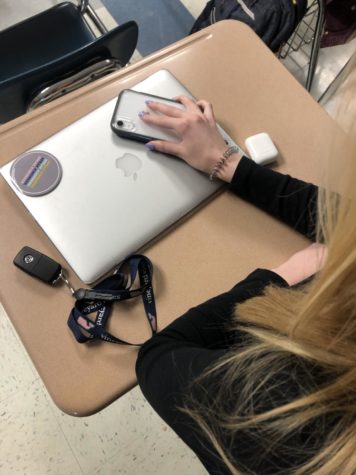
A typical Orono student desk, showing off some of the basic luxuries students use daily.
experience with more diversity, this issue can be addressed through education.
The Student Voice club, for example, has taken strides to fix inconsistencies in the accommodations for every Orono student. Previously, there was not a solution for students who may need school breakfast for free or reduced prices. This group made sure this issue was addressed, because it was not something that had to be of high priority ever in the minds of the administration.
In many English classes, teachers try to formulate a curriculum to educate students about diversity, specifically about race and issues of racism. Mr. Williams and Mrs. Frie are two examples of teachers who stimulate class discussion on these important topics and allow their students to be educated on important and crucial topics, in an attempt to prepare them for the real world and be more socially aware.
Although there is a definite ‘Orono bubble’ there are solutions in the way we educate our students. By following through on the leads some educators and students have created, there is an opportunity for students and members of the Orono community to be more prepared for the world outside of our bubble.





